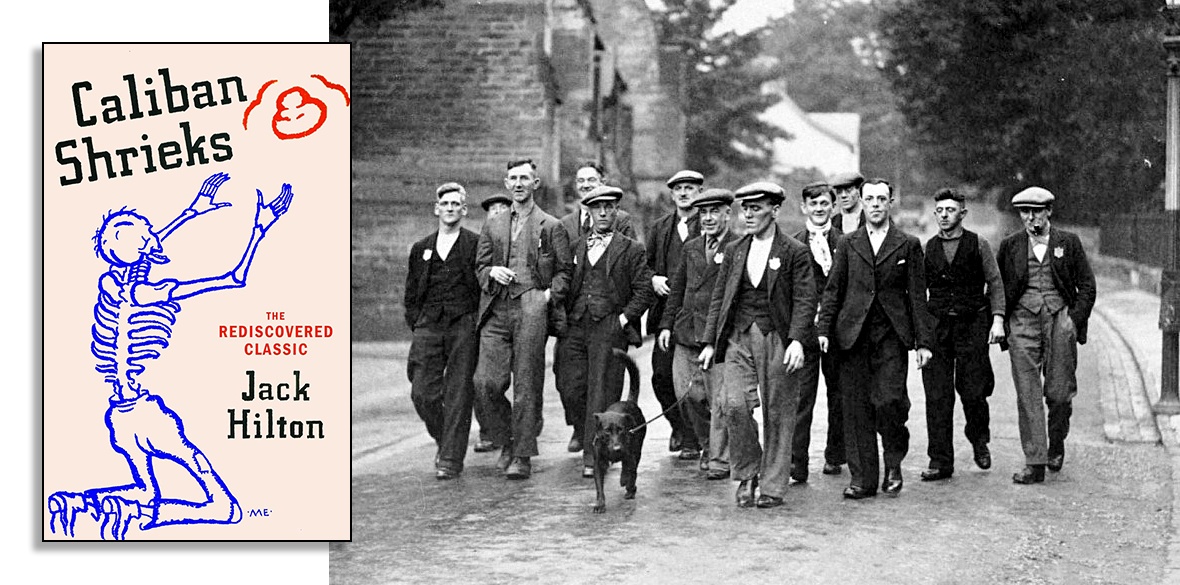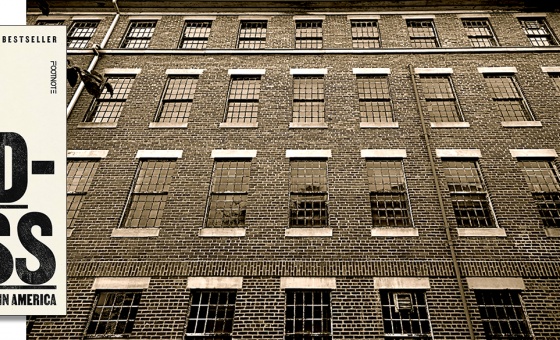This is the last article you can read this month
You can read more article this month
You can read more articles this month
Sorry your limit is up for this month
Reset on:
Please help support the Morning Star by subscribing here
Caliban Shrieks
Jack Hilton, Vintage Classics, £16.99
BILLING a novel as “the rediscovered classic” makes it a hostage to fortune: there’s a danger readers will focus on the literary detective work implied by that strapline at the expense of the book itself. In this new edition of Caliban Shrieks, a book first published in 1935, the risk is exacerbated by two absorbing introductions.
In the first, poet Andrew McMillan situates Jack Hilton’s work in the traditions of experimental and working-class fiction, lamenting the capricious nature of literary reputation and the enduring influence of regional and class inequalities in the arts.
In the other, Jack Chadwick focuses on his serendipitous encounter with a copy of the original edition in Salford’s Working-Class Movement Library. His fascination with this yellowing volume led him to delve into the author’s life and, ultimately, to bring the book back into print. Chadwick’s quest amplifies one of Hilton’s major themes — the crushing limitations imposed on working-class culture by capitalism.
Does the book merit this lavish attention? A sharp and compelling work of literary modernism, its use of various forms of creative nonfiction makes it tricky to categorise. In essence, it is a fragmented autobiography, related through fast-forward streams of consciousness and intercut with reflective socio-political commentary.
The chaotic life of the narrator echoes Hilton’s own experience. Born in 1900, he experiences an impoverished infancy, schooldays filled with patriotism and beatings, service in the first world war, life as a tramp, unemployment and — following his involvement in political protest — the horrors of imprisonment. Along the way, there are wry sideswipes at insincere Christians, corrupt trade union bureaucrats and self-serving Labour MPs.
Hilton’s style is volatile. His commentaries are spare and hardboiled, while his episodic set-pieces are baroque and, on a few occasions, overwritten to the point of obscurity. For example: “Days came and went, with a sixty seconds to the minute velocity. I, a bird of passage, kept on plodding along.”
This is a minor grumble. Caliban Shrieks is a valuable addition to a body of work that includes Robert Tressell’s The Ragged Trousered Philanthropists and James Kelman’s How Late It Was, How Late. Like them, it offers frank and incisive insights into working-class life in 20th-century Britain, tackling both its physical privations and psychological burdens.
Chadwick reveals that Hilton’s literary career was short. He was feted by Orwell and Auden, but a Wedgwood heiress at Jonathan Cape refused him a multibook deal, justifying her decision by saying: “The proletarian novel is dead.” In the 1950s, disillusioned with the world of publishing, Hilton returned to his previous trade as a plasterer.
Little has changed in the intervening years. In her new book, Vulture Capitalism, https://morningstaronline.co.uk/article/understanding-apex-predator-monopoly-capitalism, economics commentator Grace Blakely notes that: “workers are alienated from their creative power in a society in which imagination is the prerogative of capital.”
Meanwhile, 22 per cent of the UK population is living in poverty. It’s clear that 89 years after its original publication, Caliban Shrieks has transcended its period detail to speak powerfully to our own time.











